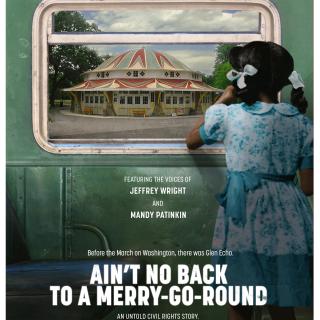Advertisement
What a tired retread this umpteenth rip-off of the brand Gene Roddenberry pioneered 50 years ago with 1966’s Star Trek TV series, is, directed and produced by the cinematic art form’s most overrated, overpaid colossal no-talents. To see how many televised and motion picture permutations - perhaps mutations is a better word? - there have been of this sci fi TV classic, starting with a 1979 big screen adaptation and including 1982’s The Wrath of Khan and 1984’s The Search for Spock, see:
www.imdb.com/find?q=Star%20Trek&s=tt&ref_=fn_al_tt_mr.
Hey Hollywood, if you want a franchise why don’t you open a fast food restaurant, instead of dishing out the filmic equivalent of junk food to audiences? Star Trek Beyond’s brain dead, stupid story rests on two bedrock foundations: Roddenberry’s half a century old characters and conventions plus plot points the inept screenwriters simply pull out of their asses. Need to increase warp speed? No problem, pick a number, any number! (No wonder three of the scribes are listed at IMDB.com as “uncredited” - no self-respecting artist would want to take credit for this doltish imbecility.) Yet, in addition to experiencing some (presumably) state of the art Real 3D and IMAX 3D technology, this space opera helmed by Justin Lin of the Fast and Furious film franchise offers non-Trekkies something of great interest.
In order to tell you what this is, Dear Reader, your usually plot spoiler averse critic has to break with his general rule and reveal (at least partially) a crucial element in Star Trek Beyond, although before doing so below I will clearly label it as such. The reason I am breaking with convention here, and transcending the bounds of a review intended for potential viewers to help them to decide whether or not to see a show, and proceeding on to the analytical role of a film critic/historian is because, as I’ve written many times, cinema reflects reality. Movies often consciously and unconsciously hold up a mirror to society and in usually coded audiovisual language comment on what’s happening in the real world.
The supreme tome about this sociological cinematic process is Siegfried Kracauer’s 1947 masterpiece about the movies of the Weimar Republic, From Caligari to Hitler, A Psychological History of the German Film. In this brilliant book Kracauer revealed how the procession of screen monsters in Germany’s post-World War I motion pictures were emanations from the collective unconscious, predicting the rise of the Nazis.
Of course, part of Star Trek’s original appeal was Roddenberry’s projection of the JFK era’s “New Frontier” ethos, embracing Kennedy’s emphasis on space exploration and the Civil Rights movement, with a (relatively) integrated, internationalist crew. African American actress Nichelle Nichols portrayed Uhura (an African word for “freedom” - in ST Beyond Zoe Saldana plays the part); the Japanese American George Takei played Sulu (John Cho, of the Harold and Kumar flicks, is Sulu in ST Beyond), a character of Asian ancestry; Walter Koenig depicted the Russian navigator Chekov (played in ST Beyond by Anton Yelchin, the Leningrad-born actor who recently died in a most unfortunate accident); not to mention otherworldly characters such as the Vulcan Mr. Spock (Leonard Nimoy in the original and Zachary Quinto as Commander Spock in the current redux); and so on. Algerian actress Sofia Boutella is good as Jaylah and mini-skirted Zoe Saldana is a larger than life delight to behold. And by the way, you’ll recognize the villain, Krall, when he appears, because he has bad teeth - a sure give away that he’s the bad guy.
The earlier Star Trek movies with William Shatner reprising his TV role as Captain James Kirk (played by Chris Pine in ST Beyond) dealt with themes of aging, friendship and the like, while 1986’s Star Trek IV: The Voyage Home had a save the whales message. In terms of topicality, while Kirk’s kiss of Uhura was probably the first interracial lip lock on episodic television, a same sex smooch was reportedly cut from ST Beyond. OMG, WWGD? (What Would Gene Do?)
However, in a very eerie example of motion picture prophecy - and here it comes: PLOT SPOILER ALERT!!!- Idris Elba portrays a disgruntled former soldier who goes on a rampage killing members of the Federation’s forces. Of course, Elba is Black (the British-born actor’s parents are from Ghana and Sierra - not Sergio - Leone), and this film is being released hard on the heels of African American ex-soldiers putting their expert U.S. military training to deadly use by shooting policemen at Dallas and then Baton Rouge. There is also some dialogue critiquing the Federation with an anti-empire tinge that one could imagine tripping off the tongue of a contemporary anti-imperialist excoriating America.
This dead on prediction of Blacks blasting authority figures is the most amazing thing about ST Beyond, thus my deciding to point this out and in the process violate my rule against putting plot spoilers in a review intended for potential ticket buyers. Although let it be said that I did make it a point to label said plot spoiler in order to warn readers of an impending disclosure they might prefer not to read.
Unlike Bilge Ebiri in the July 15 review of Woody Allen’s great new Café Society, revealing - without any such prior warning to readers - not one but two plot spoilers in a single sentence in the second graph of the piece as published in L.A. Weekly. The worst plot spoiler I ever encountered in the media was a 2009 interview with Quentin Tarantino shortly before Inglourious Basterds was released printed in New York’s Village Voice - owned, I believe, by the same brainstorms who now publish L.A. Weekly. In the very first question, the insensitive interviewer - again, without a word of caution - made a comment pertaining to when Hitler died, thus revealing a crucial plot point. I also heard a reviewer on KPCC’s Film Week give away the best sight gag - which has to do with an opera singer - in Woody’s 2012 To Rome with Love, and so on.
When critics blithely disclose plot spoilers without any prior notice to readers/listeners/viewers they are depriving potential theatergoers of the joy of discovery and surprise and sometimes of the laugh that accompanies an unexpected punch line, et al. No conscientious critic should ever do this and reviewers who do so are inept, indiscrete tattletales who don’t know how to properly review productions. To make themselves look good, they think they have to divulge the best plot devices, funniest jokes and the like. There is a special burning, front seat in hell reserved for these oblivious scribblers (right next to the flaming chair of Guy Ritchie, the movie industry’s serial kleptomaniac and grave robber of others’ ideas - best thing Madonna ever did was dump this no-talent jerk).
These plot divulgers are almost as unoriginal as the scriptwriters and filmmakers (and, lest we forget, Trump campaign speechwriters) who persist in cranking out played out reboots, remakes, sequels, transferences from one medium to another and so on. Then they tell you it’s “new” - consider the title of Batman Begins. Actually, Batman began way back in Detective Comics #27 in May, 1939, and there have been innumerable iterations of the caped crusader in numerous mediums since Bob Kane and Bill Finger created this comic book character. By the time Christopher Nolan and Christian Bale got their gloved hands on the Dark Knight in 2005, I beg to differ: Batman wasn’t “beginning” - he had already been around (and endlessly exploited) for two thirds of a century.
Now, half a century after the USS Enterprise first flew across our TV screens, audiences are being subjected to yet another version of Star Dreck. I suppose that hardcore Trekkies and aficionados of mindless special effects, as well as sci fi fans, will likely enjoy this dreary adaptation, a commercial enterprise intended to ruthlessly exploit a well-known brand name that none of the current slew of talent-less hacks had anything to remotely do in creating. For this creaky “blackbuster’s” reported bloated budget of $185 million, how many indies focusing on, you know, like the human condition, with character development, dialog and creativity, could Paramount have mounted? Woody’s Café Society reportedly cost less than one sixth ST Beyond’s, but is far more than six times better.
Star Trek Beyondis truly above and beyond the call of onscreen idiocy. Hey Hollywood, if you really want to go where no man has gone before, try creating your own characters and stories. That’s how a true artist’s legacy lives long and prospers.
L.A.-based film historian/critic Ed Rampell wrote Progressive Hollywood, A People’s Film History of the United States and co-authored The Hawaii Movie and Television Book. (See: http://hawaiimtvbook.weebly.com/.)



